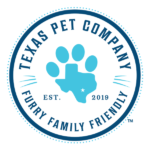When little Fido is rump scooting across the living room rug in the middle of watching Mall Cop on television, the first reaction that comes from the children’s section is hysterical laughter — moreso even than watching the movie. But rump scooting is not a new trick. It is a serious problem for Fido that most inexperienced dog owners do not yet recognize.
There are only two things that can come from most rump scooting of dogs: (1) worms or (2) plugged anal glands. Determining which one it is will require a trip to the family veterinarian. But if you are an experienced dog owner and have your dog on a routine worming schedule, you will know instantly it is probably plugged anal glands. If you have just had your dog to the vet and had the anal glands “expressed” and do not have your dog on a worming regime, you can bet your boots it is probably worms.
But before getting too excited, ruling out little simple problems can be done before rushing off to the vet and having the poor dog’s rectum taken care of in a not-so-pleasant manner. Dried feces in the anal area, or even a small weed or twig lodged in the hair of the rectal area can drive a dog crazy. They have been known to cause the animal to go rump scooting all over the rug as if in a dead race, trying to dislodge these itchy and annoying items. Checking this area out manually should be done before getting too excited about serious rump-scooting issues like plugged anal sacs, rectal conditions or worms.
Anal rump scooting: signs and treatments
Anal sacs are positioned on both sides of the dog’s anus, located in the 5 and 7 o’clock positions. When they are plugged, the dog will rump scoot around the floor while attempting to dislodge this odd and uncomfortable feeling. At this point, the pet owner can easily insert the first finger into the rectum while keeping the thumb outside, forcibly squeezing the plugged secretions for removal.
Referred to as “expressing” the anal sacs, these plugged sacs need to be emptied before they become impacted and eventually progressing to abscess and rupturing. When this occurs, a vet will need to express them as the area is extremely tender with the sacs uncomfortably distended. As the secretions of the anal sacs discharge, their color will be thick and dark or grayish brown.
If the secretions do not completely empty out due to insufficient pressure on the sacs, they will become impacted — a situation which is known to occur mainly in small-breed dogs. This will require minor surgery of the anus. Such dogs with routine anal problems should be placed on a high-fiber diet or given a bulk laxative.
Worms: signs and treatments
Rump scooting may indicate the dog simply has worms — easily seen as little rice-looking white kernels crawling around the rectum area. These will irritate the dog and cause them to itch, relieved by the dog when it scoots. The rice segments are nothing but broken-off moving segments about 1/4 -inch long of a long tapeworm located in the small intestine. Dogs should be checked for this type of worm twice a year as they originate from fleas and lice, a common occurrence in dogs — and hard to get rid of.
If the dog is thought to have worms, it will need to be tested at the vet by taking a feces sample in. Some vets insert a tool like a large cotton-swab into the rectum to check the feces for blood and to see what type of worms the dog has. An appropriate worming regime will be given, depending on the type of worm the dog has, and an antibiotic if the dog has become anemic.

